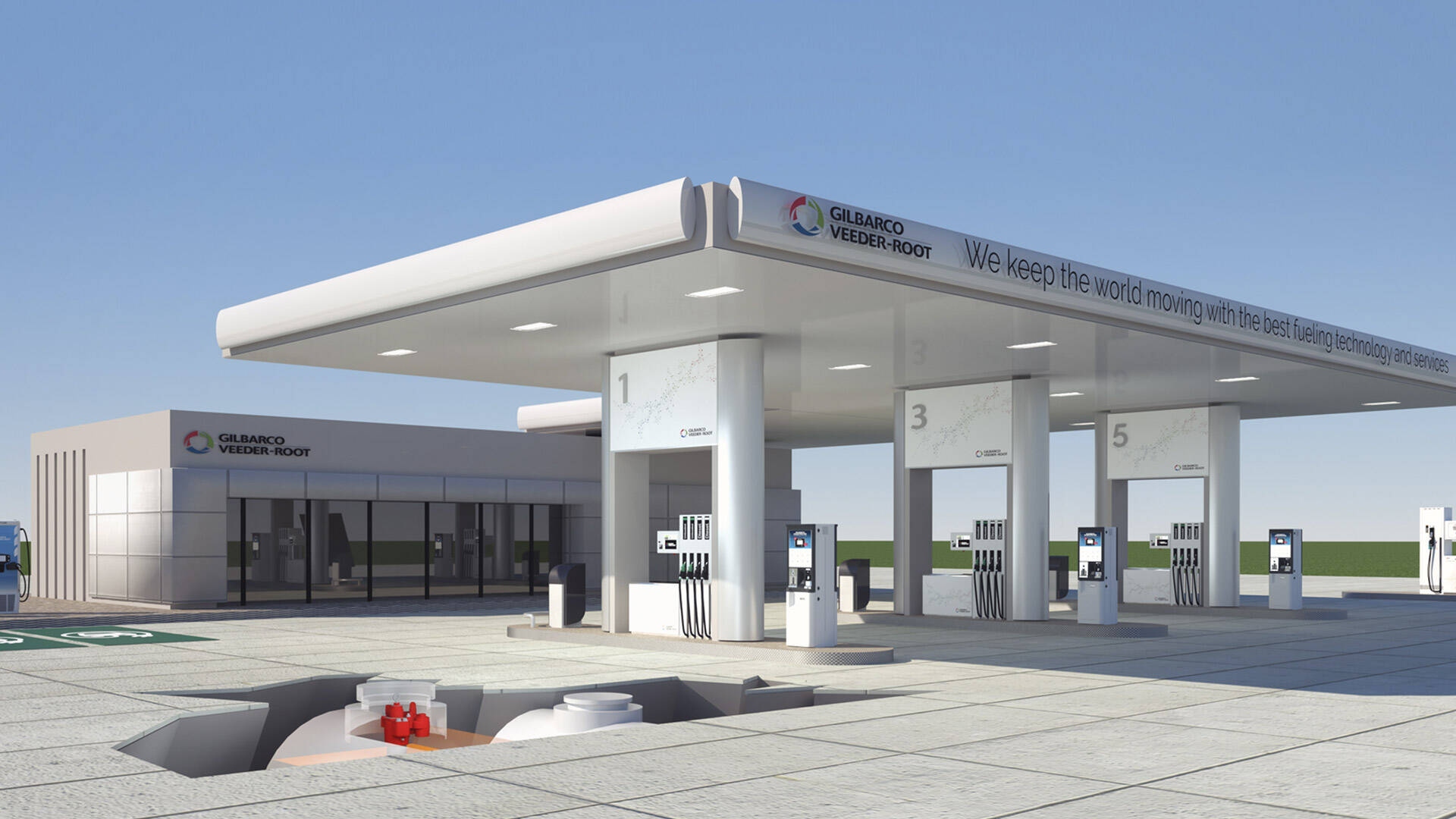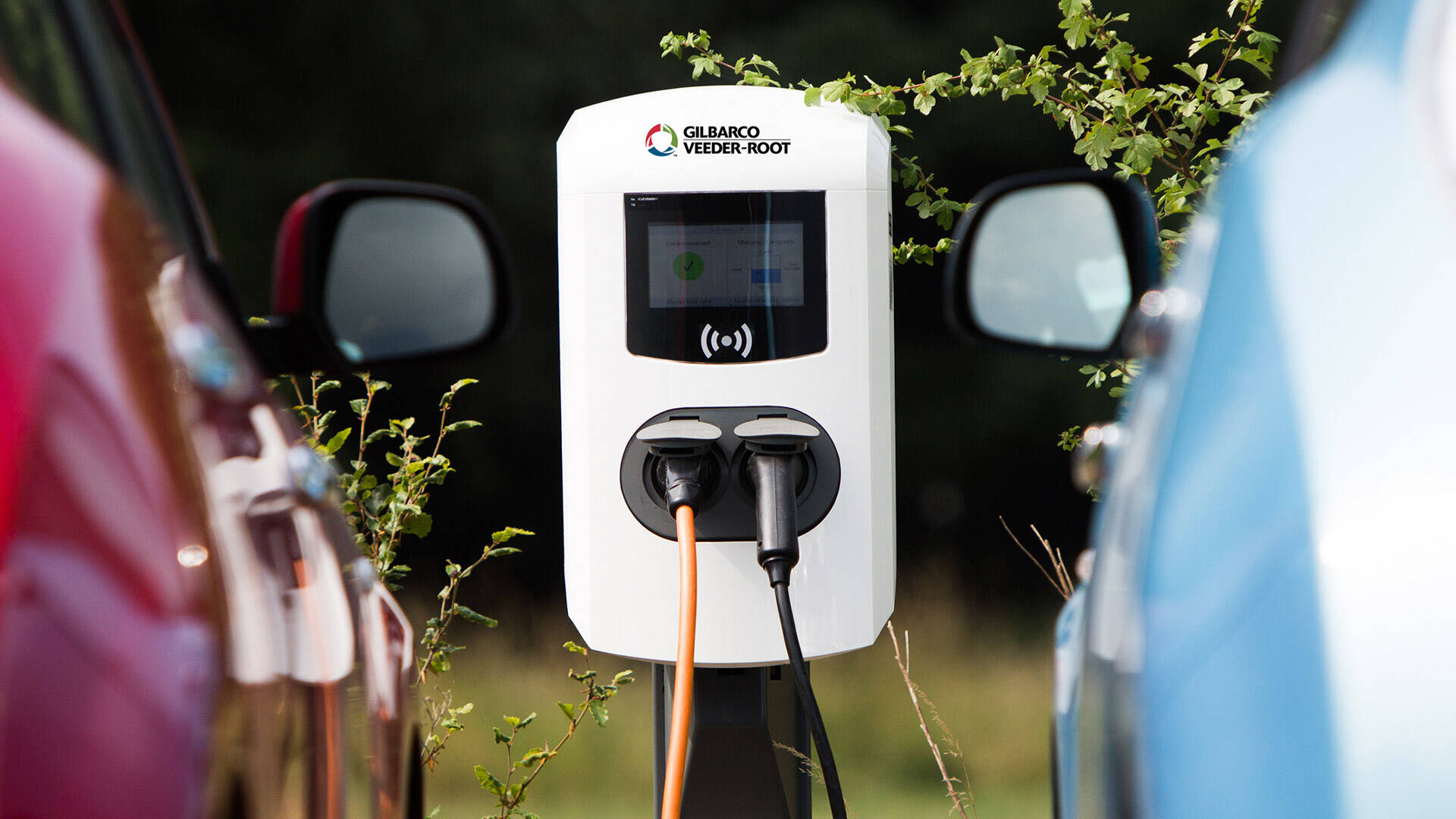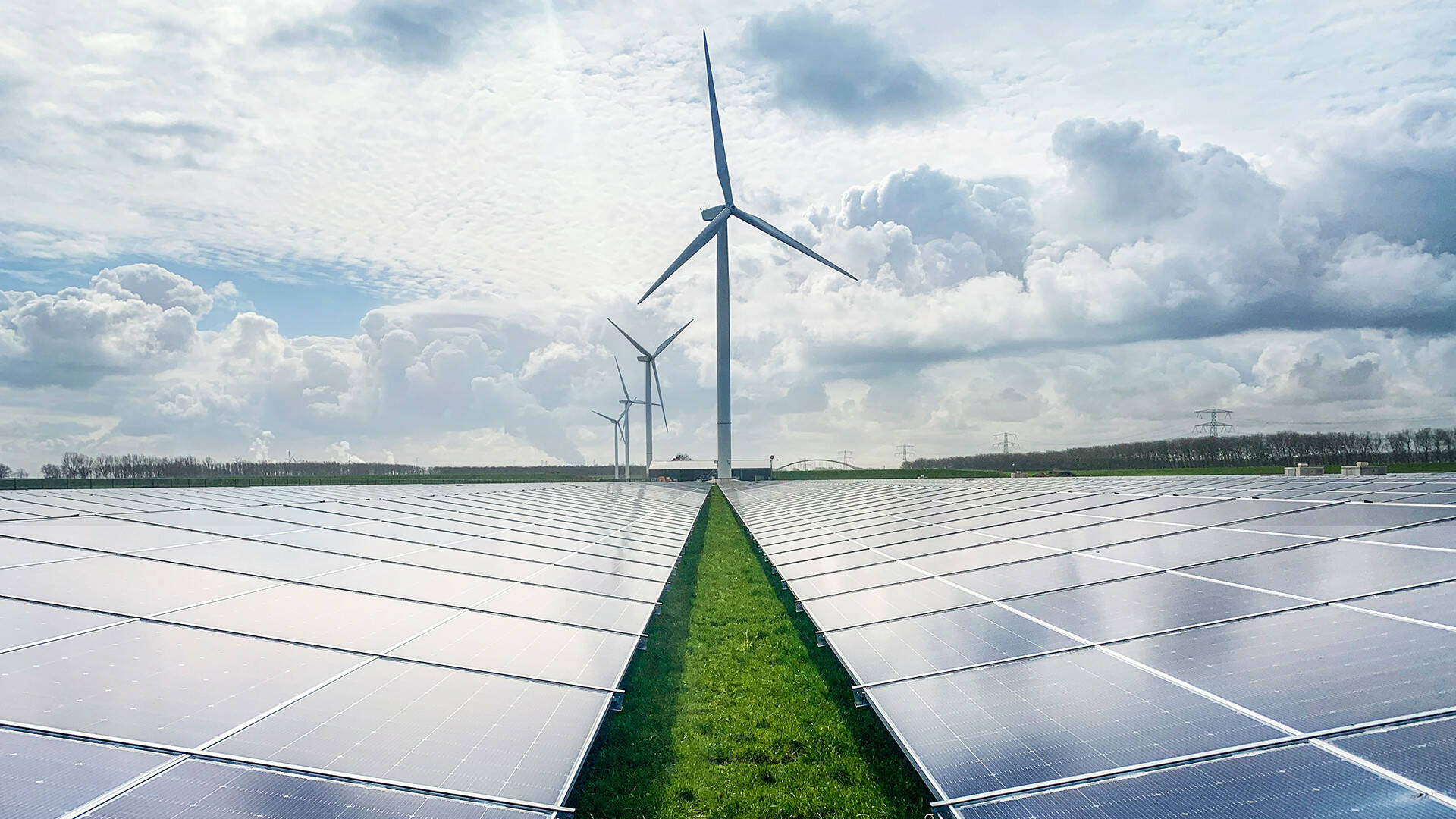
Gilbarco
Veeder-Root talks about fuel stations of the future



Go to next article

Go back
scroll down

Gilbarco’s added value lies in software applications and the related services and so we need good quality, reliable hardware to complement this i.e. DC and AC chargers and energy storage. Alfen is strong in both smart AC chargers and energy storage hardware.
Currently, we are focused on gas stations with DC chargers, but our customers will expand to other locations where AC charging is required, for example for fleet vehicles. Delivering this needs to be as hassle free as possible and so we looked for the best quality/price ratio, breadth and depth of solution and geographical reach and that is why we chose Alfen.
How does Alfen provide value?
Storage and energy management are going to be very important because there will be more charge points and they will increasingly need to charge faster. In some grid locations, there will not be sufficient capacity to deliver this and therefore load management and energy storage will increasingly be relevant. Our EVerse backend software solutions allow for managing this energy at the site level, in the most efficient way.
What is your view on integrated energy storage?
What opportunities and challenges do you expect as uptake of EVs increases?
We consider the EV charging business to still be in an early phase - not yet entirely profitable, except in Norway. In Norway, charge point operators with decent scale are now breaking even (or are about to break even), even where they don’t have associated retail outlets. In other countries in Europe, we still need greater EV penetration. Regardless of this, conventional petroleum retailers wanting to retain customers and loyalty need to adapt to this market in the short term by offering EV charging which then drives customers to their retail offering to boost turnover.
We think that a significant proportion of passenger vehicles are going to be electric (maybe mixed with some hydrogen trucks and buses) and, in this respect, we’ve learned a lot in recent years. There are many similarities with the petroleum business, for example, the opportunity to offer complimentary services such as sandwiches and drinks, and the need to maximise uptime. There are also differences; the major one being that people have the choice to charge in other locations such as at home, work or on-street.
The hardware is evolving all the time to keep up with this behavioural shift but, at the heart of everything, is the software because it enables the commercial and technical operation of the charging equipment and supports energy management - which is key. As electricity demand increases, more effort will be required to make demand match supply, rather than the other way around, and this will require technologies to be interconnected and communicate. Gilbarco is already anticipating this by equipping software with energy management capabilities and testing it in pilot projects.
While petroleum retail is highly regulated, for example, for safety and weights and measures standards, charging infrastructure is not yet fully regulated. Yes, there is CE and IEC conformity requirement from a safety point of view, but safety zoning rules seem to differ per country, namely for when charging equipment is being installed close to or on the forecourt of gas stations.
AC / DC meter calibration was also completely absent in 2019. If you fill your car with petrol, you are guaranteed to receive and pay for the exact volume shown on the fuel dispenser display, but this principle does not yet apply to AC or fast DC EV charging. Germany is the only country to have addressed calibration with its Eichrecht law, but we do expect the rest of Europe to follow suit with similar legislation, particularly once Eichrecht has proven to be successful.
“ The hardware is evolving all the time but at the heart of everything is software because energy management is key ”
Can you tell us more about Gilbarco’s role and position in the European EV charging market?
Eighty to ninety percent of our e-Mobility business is currently in Europe. Our target is Europe first, followed by the US. We are predominantly focused on ‘on-the-go’ refuelling locations so most of our work is with large petroleum retailers like Shell and BP, amongst others. We are an ideal partner for them because we hold existing relationships and understand their needs and rules, for example, around health and safety. We also strongly believe that they are one of three major EV charge point operator segments - the others being utilities and, to some extent, the automotive industry. In addition to this ‘on-the-go’ segment, we are also addressing the ‘destination’ segment, which has similar technical and service requirements, and the ‘fleet’ segment, where we are able to draw unique synergies by working alongside our sister company, Teletrac Navman, which provides telematics solutions for fleet management and has already started to consult its customers on the transition to electric fleet vehicles.
Our core EVerse backend software solution and related services are offered either as a ‘do-it-for-me’ solution, where we provide full operational management of the charging network on behalf of the owner, or as a ‘do-it-yourself’ solution, where we supply the backend software solution and the owner operates the network – although still may decide to outsource some or all of the technical support to us.
We believe that these two formulas allow our customers to grow their own operations in the e-Mobility space and, if desired, switch from the ‘do-it-for-me’ solution, while their EV charging operation is still too small to justify setting up their own overhead for operating the EV charging equipment, to the ‘do-it-yourself’ solution, as soon as they have reached scale.
Our EVerse solution also offers an optional sophisticated Energy Management module which will become increasingly important over time, when the number of charging stations per location will be growing.
Can you introduce Gilbarco and your role?
For over 150 years, Gilbarco has earned the trust of its customers by providing long-term partnership, uncompromising support and proven reliability. Our strategy is to offer products and services at places where vehicles are refuelled – whether by fossil fuels, gas, electricity, or another fuel type - we are always innovating to keep up with the latest developments in fuels and alternative fuels.
We offer a range of solutions, all designed to maximise uptime and profitability. As well as fuel dispensers, point-of-sale and payment systems, we also offer smart solutions which enable services like wetstock reconciliation, alarm management and customer loyalty. On the service side, we also offer onsite and remote technical support to help customers protect their assets and drive operational efficiency.
We entered the EV charging market in 2018 and currently provide the supply and installation of fast and ultra-fast chargers, complete with payment systems. We also offer AC charging equipment in partnership with Alfen. At the core of our offering are our EVerse software platform solutions which can be complemented with our call centre and remote and onsite technical support services, as well as with our commercial, administrative, and financial support services.
I have been responsible for our EV charging proposition in EMEA since January 2019 and, during that period, the dedicated e-Mobility team has quadrupled in size, whilst we continue to leverage Gilbarco’s existing remote and field service expertise.

An interview with Eric Denivelle,
E-mobility Business Director at Gilbarco
Retail and commercial fuelling solutions provider, Gilbarco Veeder-Root, has a 150-year history of keeping vehicles moving worldwide. Its integrated solutions encompass everything from traditional fuel pumps to point-of-sale (POS) and payment systems for fuel and retail goods. Its modular solutions and corresponding services integrate the whole fuel retail ecosystem to provide advanced operational management - with options to support pricing, promotion, customer loyalty, inventory management and management reporting.
Gilbarco is now applying its award-winning technologies and experience, honed from decades of fuel distribution experience, to provide solutions for electric vehicle charging. By offering both off-the-shelf and customisable charging solutions for fuel retailers, fleet owners and businesses of any size, it aims to remove many of the barriers organisations face when setting up customer or employee charging infrastructure from scratch. Importantly, its turnkey e-Mobility offering is also scalable, to accommodate business growth.
E-Mobility Business Director, Eric Denivelle, has worked for Gilbarco in various commercial and management roles since 2001 and is currently responsible for Gilbarco’s EV charging proposition in EMEA.


Gilbarco
Veeder-Root talks about fuel stations of the future

Gilbarco’s added value lies in software applications and the related services and so we need good quality, reliable hardware to complement this i.e. DC and AC chargers and energy storage. Alfen is strong in both smart AC chargers and energy storage hardware.
Currently, we are focused on gas stations with DC chargers, but our customers will expand to other locations where AC charging is required, for example for fleet vehicles. Delivering this needs to be as hassle free as possible and so we looked for the best quality/price ratio, breadth and depth of solution and geographical reach and that is why we chose Alfen.
How does Alfen provide value?
Storage and energy management are going to be very important because there will be more charge points and they will increasingly need to charge faster. In some grid locations, there will not be sufficient capacity to deliver this and therefore load management and energy storage will increasingly be relevant. Our EVerse backend software solutions allow for managing this energy at the site level, in the most efficient way.
What is your view on integrated energy storage?


Go to next article

Go back
What opportunities and challenges do you expect as uptake of EVs increases?
We consider the EV charging business to still be in an early phase - not yet entirely profitable, except in Norway. In Norway, charge point operators with decent scale are now breaking even (or are about to break even), even where they don’t have associated retail outlets. In other countries in Europe, we still need greater EV penetration. Regardless of this, conventional petroleum retailers wanting to retain customers and loyalty need to adapt to this market in the short term by offering EV charging which then drives customers to their retail offering to boost turnover.
We think that a significant proportion of passenger vehicles are going to be electric (maybe mixed with some hydrogen trucks and buses) and, in this respect, we’ve learned a lot in recent years. There are many similarities with the petroleum business, for example, the opportunity to offer complimentary services such as sandwiches and drinks, and the need to maximise uptime. There are also differences; the major one being that people have the choice to charge in other locations such as at home, work or on-street.
The hardware is evolving all the time to keep up with this behavioural shift but, at the heart of everything, is the software because it enables the commercial and technical operation of the charging equipment and supports energy management - which is key. As electricity demand increases, more effort will be required to make demand match supply, rather than the other way around, and this will require technologies to be interconnected and communicate. Gilbarco is already anticipating this by equipping software with energy management capabilities and testing it in pilot projects.
While petroleum retail is highly regulated, for example, for safety and weights and measures standards, charging infrastructure is not yet fully regulated. Yes, there is CE and IEC conformity requirement from a safety point of view, but safety zoning rules seem to differ per country, namely for when charging equipment is being installed close to or on the forecourt of gas stations.
AC / DC meter calibration was also completely absent in 2019. If you fill your car with petrol, you are guaranteed to receive and pay for the exact volume shown on the fuel dispenser display, but this principle does not yet apply to AC or fast DC EV charging. Germany is the only country to have addressed calibration with its Eichrecht law, but we do expect the rest of Europe to follow suit with similar legislation, particularly once Eichrecht has proven to be successful.

“ The hardware is evolving all the time but at the heart of everything is software because energy management is key ”
Can you tell us more about Gilbarco’s role and position in the European EV charging market?
Eighty to ninety percent of our e-Mobility business is currently in Europe. Our target is Europe first, followed by the US. We are predominantly focused on ‘on-the-go’ refuelling locations so most of our work is with large petroleum retailers like Shell and BP, amongst others. We are an ideal partner for them because we hold existing relationships and understand their needs and rules, for example, around health and safety. We also strongly believe that they are one of three major EV charge point operator segments - the others being utilities and, to some extent, the automotive industry. In addition to this ‘on-the-go’ segment, we are also addressing the ‘destination’ segment, which has similar technical and service requirements, and the ‘fleet’ segment, where we are able to draw unique synergies by working alongside our sister company, Teletrac Navman, which provides telematics solutions for fleet management and has already started to consult its customers on the transition to electric fleet vehicles.
Our core EVerse backend software solution and related services are offered either as a ‘do-it-for-me’ solution, where we provide full operational management of the charging network on behalf of the owner, or as a ‘do-it-yourself’ solution, where we supply the backend software solution and the owner operates the network – although still may decide to outsource some or all of the technical support to us.
We believe that these two formulas allow our customers to grow their own operations in the e-Mobility space and, if desired, switch from the ‘do-it-for-me’ solution, while their EV charging operation is still too small to justify setting up their own overhead for operating the EV charging equipment, to the ‘do-it-yourself’ solution, as soon as they have reached scale.
Our EVerse solution also offers an optional sophisticated Energy Management module which will become increasingly important over time, when the number of charging stations per location will be growing.
Can you introduce Gilbarco and your role?
For over 150 years, Gilbarco has earned the trust of its customers by providing long-term partnership, uncompromising support and proven reliability. Our strategy is to offer products and services at places where vehicles are refuelled – whether by fossil fuels, gas, electricity, or another fuel type - we are always innovating to keep up with the latest developments in fuels and alternative fuels.
We offer a range of solutions, all designed to maximise uptime and profitability. As well as fuel dispensers, point-of-sale and payment systems, we also offer smart solutions which enable services like wetstock reconciliation, alarm management and customer loyalty. On the service side, we also offer onsite and remote technical support to help customers protect their assets and drive operational efficiency.
We entered the EV charging market in 2018 and currently provide the supply and installation of fast and ultra-fast chargers, complete with payment systems. We also offer AC charging equipment in partnership with Alfen. At the core of our offering are our EVerse software platform solutions which can be complemented with our call centre and remote and onsite technical support services, as well as with our commercial, administrative, and financial support services.
I have been responsible for our EV charging proposition in EMEA since January 2019 and, during that period, the dedicated e-Mobility team has quadrupled in size, whilst we continue to leverage Gilbarco’s existing remote and field service expertise.

An interview with Eric Denivelle,
E-mobility Business Director at Gilbarco
Retail and commercial fuelling solutions provider, Gilbarco Veeder-Root, has a 150-year history of keeping vehicles moving worldwide. Its integrated solutions encompass everything from traditional fuel pumps to point-of-sale (POS) and payment systems for fuel and retail goods. Its modular solutions and corresponding services integrate the whole fuel retail ecosystem to provide advanced operational management - with options to support pricing, promotion, customer loyalty, inventory management and management reporting.
Gilbarco is now applying its award-winning technologies and experience, honed from decades of fuel distribution experience, to provide solutions for electric vehicle charging. By offering both off-the-shelf and customisable charging solutions for fuel retailers, fleet owners and businesses of any size, it aims to remove many of the barriers organisations face when setting up customer or employee charging infrastructure from scratch. Importantly, its turnkey e-Mobility offering is also scalable, to accommodate business growth.
E-Mobility Business Director, Eric Denivelle, has worked for Gilbarco in various commercial and management roles since 2001 and is currently responsible for Gilbarco’s EV charging proposition in EMEA.






